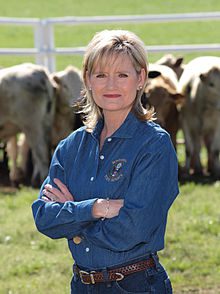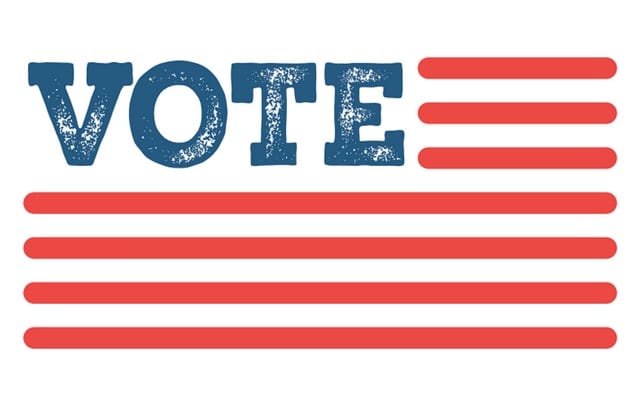
Joint Senate-House Contingent Questions Vietnamese WTO Request as Safety Certification Looms
A united Mississippi congressional delegation is part of bipartisan and bicameral effort encouraging the U.S. Trade Representative to defend the nation’s food safety laws on behalf of the U.S. catfish industry and consumers as Vietnam seeks to challenge the U.S. Department of Agriculture’s catfish inspection standards.
Responding to a Vietnamese request to the World Trade Organization (WTO), the Mississippi lawmakers are among 20 members of Congress who have signed a letter asking U.S. Trade Representative Robert Lighthizer to defend food safety inspections of catfish by the USDA Food Safety Inspection Service (USDA-FSIS).
U.S. Senators Roger Wicker (R-Miss.) and Cindy Hyde-Smith (R-Miss.), and Representatives Bennie Thompson (D-Miss.), Gregg Harper (R-Miss.), Steven Palazzo (R-Miss.), and Trent Kelly (R-Miss.) signed the letter to support Mississippi’s catfish industry, which had a $181 million value of production in 2017. Mississippi is the leading catfish-producing state in the nation.
“Foreign-produced catfish is now subject to the same rigorous inspections that already exist for other imports like beef, pork, and poultry,” Wicker said. “These inspections protect consumers and keep tainted food that could contain illegal carcinogens and other chemicals from ever reaching American dinner tables. I am proud to support Mississippi’s catfish producers, and will continue to work to ensure they will not be undercut by substandard foreign fish flooding the U.S. market.”
“The law is the law—the same for American and foreign producers,” said Hyde-Smith, who championed U.S. farm-raised catfish as the Mississippi Commissioner of Agriculture and Commerce. “Mississippi catfish producers deserve to compete on a level playing field with foreign producers, and, more importantly, American consumers need to be confident that the catfish they serve their families is healthy, safe, and free of dangerous chemicals.”
“A number of Mississippi-farm catfish is raised in the Second Congressional District,” Thompson said. “The protection of catfish farmers and consumers in my district is dependent on the food safety inspections, in which we are urging U.S. Trade Representative Lighthizer to defend. Catfish is very important to Mississippi, and it is essential that consumers are purchasing safe catfish.”
“This law is about protecting consumers in the United States,” said Harper. “Thanks to USDA food inspections, thousands of pounds of tainted catfish have been stopped from reaching dinner tables across the country. This program does not prevent competition from foreign producers, but it does ensure a safe catfish food supply. I am hopeful the WTO will recognize the vital role of reliable food safety inspection to the health and well-being of our citizens.”
“In April I had the opportunity to speak with Secretary Perdue and I questioned him about this very issue. What this boils down to is fairness and equivalency of standards. It’s about keeping the public safe, and keeping our domestic catfish industry on an equal playing field with foreign importers,” Palazzo said.
“Keeping our citizens safe is a top priority,” Kelly said. “We’re monitoring this WTO-Vietnam situation. USDA-FSIS is doing a great job on catfish inspections, and foreign competitors who can’t meet U.S. standards are bothered by that. Our own catfish producers in Mississippi certainly work hard to meet those standards, so everyone else should, as well.”
The letter encourages Lighthizer to safeguard the USDA-FSIS program that has kept hundreds of tons of tainted catfish out the U.S. food supply since 2016.
“USDA-FSIS is currently determining equivalency of foreign importers of catfish and catfish-like products, including Vietnam. Throughout this process, safe catfish imports have continued to come into the U.S. from Vietnam and other countries. The catfish and catfish-like products that have not been approved to enter our food supply contain unapproved animal drugs, carcinogens and other harmful contaminants,” the lawmakers wrote.
“Given the fact that the concept of equivalence originated with the WTO, and that Vietnam has yet to demonstrate it, we believe Vietnam’s request for consultation lacks merit and respect for U.S. food safety laws,” they said.
Due to public health concerns, then-Senator Thad Cochran (R-Miss.) included provisions in the 2008 and 2014 farm bills to transfer catfish inspection authority to the USDA-FSIS from the Food and Drug Administration, which inspected less than two percent of imported catfish and relied solely on point-of-entry inspection. The American Cancer Society endorsed the USDA-authorized catfish inspection program in 2016.
Senator John Boozman (R-Ark.) and Representative Rick Crawford (R-Ark.) led the letter to Lighthizer. In addition to the Mississippi lawmakers, it was signed by: Senators Tom Cotton (R-Ark.), Doug Jones (D-Ala.), and Richard Shelby (R-Ala.); and Representatives Ralph Abraham, M.D. (R-La.) Bradley Byrne (R-Ala.), Rosa DeLauro (D-Conn.), French Hill (R-Ark.), Martha Roby (R-Ala.), Mike Rogers (R-Ala.), Terri Sewell (D-Ala.), Bruce Westerman (R-Ark.) and Steve Womack (R-Ark.).
A PDF copy of the letter is available here. The text of the correspondence is below:
Dear Ambassador Lighthizer,
As you know, following Congressional intent in the 2008 and 2014 Farm Bills, the United States Department of Agriculture Food Safety Inspection Service (USDA-FSIS) has taken over the inspection of catfish and catfish-like products from the Food and Drug Administration (FDA). The program is working efficiently and effectively to ensure the safety of catfish in our food supply, and we ask that you defend this necessary food safety program.
Vietnam recently requested consultations at the World Trade Organization (WTO) regarding USDA-FSIS catfish inspection. Disappointingly, this action by Vietnam has nothing to do with trade and everything to do with politics. In fact, USDA-FSIS is currently determining equivalency of foreign importers of catfish and catfish-like products, including Vietnam. Throughout this process, safe catfish imports have continued to come into the U.S. from Vietnam and other countries. The catfish and catfish-like products that have not been approved to enter our food supply contain unapproved animal drugs, carcinogens and other harmful contaminants.
USDA-FSIS inspection, which has kept hundreds of tons of tainted catfish out of the U.S. food supply since officially beginning operations in 2016, has unfortunately continued to come under attack. The most often cited statement is an outdated Government Accountability Office (GAO) study, which noted that the USDA-FSIS catfish inspection system is duplicative with FDA inspection. However, this could not be further from the truth. The FDA no longer inspects catfish or catfish-like products, only USDA-FSIS inspects these products.
Lastly, the timing of Vietnam’s request for consultations is suspiciously close to the time in which the Vietnamese government was expected to demonstrate that its regulatory food safety inspection system is equivalent to that of USDA-FSIS. Given the fact that the concept of equivalence originated with the WTO, and that Vietnam has yet to demonstrate it, we believe Vietnam’s request for consultation lacks merit and respect for U.S. food safety laws.
Going forward in these consultations, we ask you to stand with U.S. catfish farmers and USDA-FSIS inspection of catfish to ensure a safe, wholesome food supply for U.S. consumers. Thank you for your attention to this matter, and we look forward to your response.
Press Releases
5/4/2018











